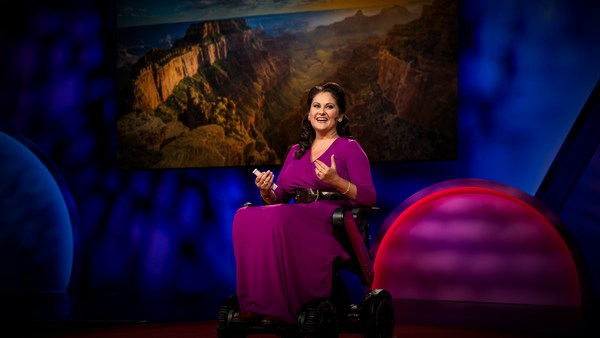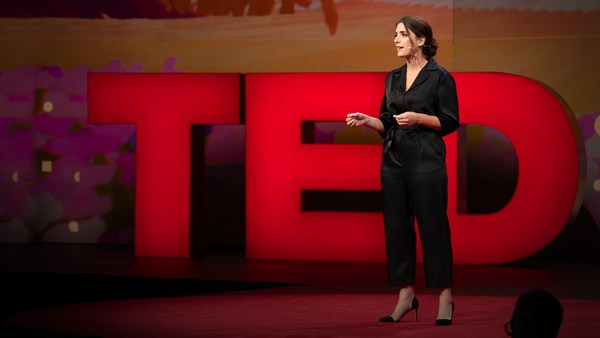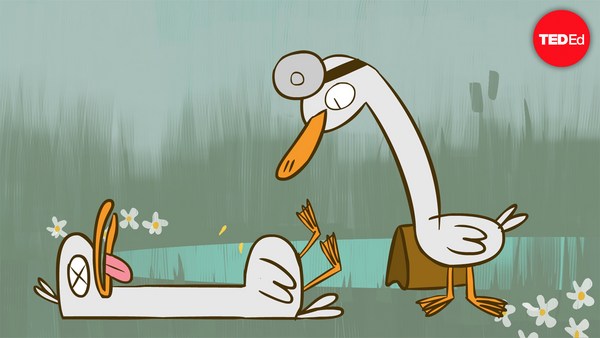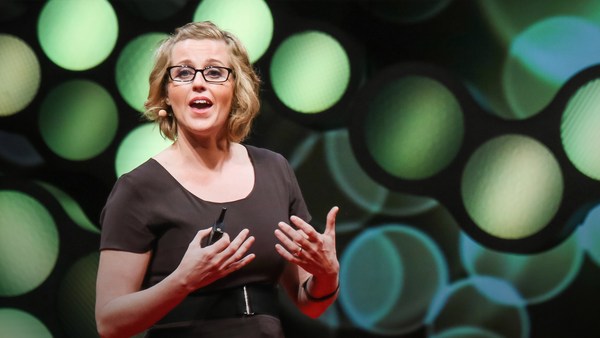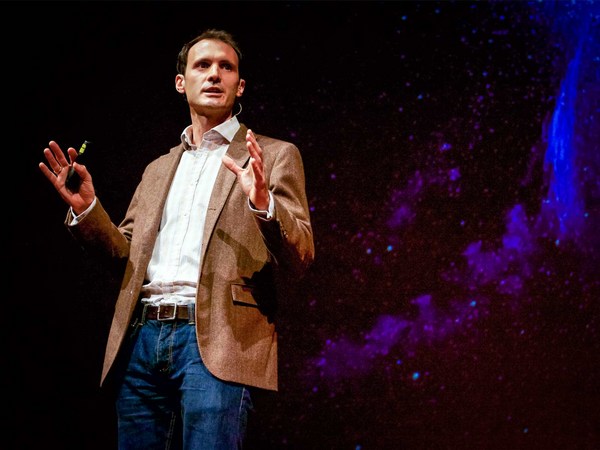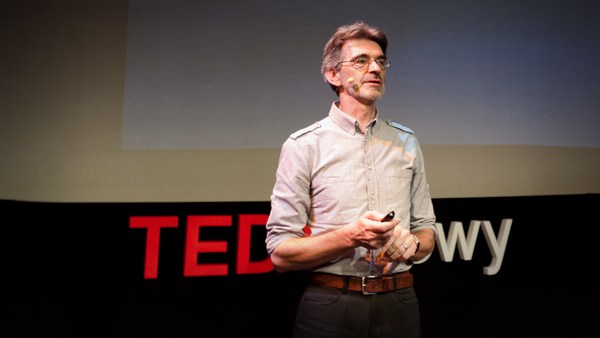So the gods sent a message to an old king. "We will disguise you so that you can enter the enemy camp, find your son's killer and then you can try and ransom your dead son's body back off him." When the king tells his queen, she is terrified. "Don't go! Man-slaying Achilles will kill you too." But then the old man, King Priam of Troy, says something strange and wonderful but difficult for our generation to fully comprehend. "I don't care if the Greeks kill me, just as long as I first have the heart-comforting embrace of my dead son in my arms."
"My dead son in my arms?" Doesn't the old man know that the bodies of the dead are worthless? His quest pointless. Who would risk their life for a corpse? The story comes from Book 24 of "The Iliad," a foundation work of Western civilization written by Homer in 700 BC about a war that took place in 1300 BC. The siege of Troy. A bardic poem that was memorized, recited and performed for thousands of years.
You heard the sound of the Iliad cascade through your ears and in that retelling you rediscover the ancient life and death wisdom of our ancestors. How to be brave in sorrow, how to face your own death with courage, how to teach your children how to die, how to be a better mortal, a better human. (In Greek) "Hṑs hoí g’ amphíepon táphon Héktoros hippodámoio." The very last line in Ancient Greek of "The Iliad" itself. A wisdom that we have willfully forgotten and lost in our newish self-centered fear of death.
In contrast, we have subcontracted our mortality out. Modern death absurdly has become a medical specialism. Palliative care a foreign country we never visit. Or only at the end of our own lives. The ultimate form of death denial. Just as we have forbidden ourselves not only the embrace but the very sight of our own dead.
Forbidden. Shall we take a test? Can you take the fingers of your right hand? Yeah, you, everyone, and count off the number of corpses that you have seen, touched, kissed and embraced in your entire life? One? Or two? Or none? Will your corpse count make it to the fingers of your left hand? And how could that be, in a world where everyone is mortal?
On our TV screens, we would pixel it out, that final act of Homeric love, the dead Hector in his father's arms, on the grounds of taste and public decency, and the advertizing revenue. But our existential flight has not made us stronger, wiser, more death-courageous, just more fearful. We're far too sad, too frightened of our own death. Our conception of death has narrowed to an I-thing, never an our-thing. The terminally ill are often ashamed of their sickening and hide from sight. We are embarrassed about what to say to a colleague who's lost someone they love. Embarrassed by our mortality. Worried that if we say anything, we will make them more sad. And sad, of course, is bad.
The pleasures of sorrow, grieving openly together, are unrecognizable to us. Though they are often cited in "The Iliad" along with motherly advice to have more sex as a form of grief therapy. Advice, which speaking from personal experience, can do a grieving soul a world of good.
(Laughter)
We are more afraid of dying than those warriors on the plains of Troy. More conquered by death. And of course, you always would be more sad and more afraid if you believe that you will only ever face death alone and in terror. A once in a death time experience. A me-death, never a we-death.
But what about if you train for death the same way that we all train to drive a car? Taking lessons off an instructor. Going on little laps around your local neighborhood, sitting a whole series of tests, which even if you failed, you'd get to resit again. A common social experience, a rite of passage. It doesn't sound hard, does it? Now if you've never been to a Trojan wake or an Irish version of the same thing, and only seen the movie, you're probably thinking it's just another Irish piss-up. A few drunks in some dank bar, lamenting their dead uncle Johnny who they buried that morning. But you would be dead wrong. Wakes are the oldest rites of humanity.
When I was seven, my mother took me to meet my first corpse. A wake on the island of our ancestors. An old man with hairy nostrils lying in a box, who I instinctively knew wasn't sleeping. Even then in her maternal care she was teaching her boy to overcome the fear of death, just as her community had overcome their fear together for thousands of years. My family have lived in the same village on an island off the coast of County Mayo in Ireland for the last 250 years. A real wake has got a real dead body. A dead one of us.
Now they don't say much, but you sure can learn a lot in their company. Every human being who you have ever touched before, in love or anger, is a warm-blooded mammal. But the dead are so cold they could be carved from marble.
Later in life, when I took my own dead brother Bernard in my arms, and kissed and embraced him, I could not at first believe that this stone-cold mannequin had ever been human.
And here's another existential epiphany. As you are sitting here listening to me, your heart is pumping blood. But when you cut that pump, the pressure disappears, the blood flows to the lower limbs, your cheeks sag, your face turns gray, your bloodless fingers a yellow ivory. And the great animating kern of personality, like the ignition on your car, is just gone.
So what happens then, yeah? What we shouldn't do and what our ancestors didn't do, is then say something stupid. Like, "That's just a shell, forget about it," you know? The being that you loved in life never existed outside that body and if you loved that person in life, how should you not revere and respect their body in death? The Romans, the Kelts, the Greeks revered their dead. Like a newborn child, the dead were never to be left alone, and always had someone to watch over them until they were laid to rest.
Sad was good too. There was no shame in sorrow at the gates of Troy. Even man-slaying Achilles wept until his breastplate was wet with tears, and women cried and grieved openly at funerals. The bodies of the dead were of worth. Together, our ancestors enacted a whole raft of rituals to bind up the wound of mortality, comfort the afflicted, bury their dead and get on with the rest of their lives. They gave of themselves freely. And they had a great time too, feasting, drinking, and having sex at funerals.
Death -- and here is a really big idea -- was and is an every-other-day sort of event. Just as it is in Ireland today, where people still go in great numbers to wakes and funerals, and an ordinary person might see dozens, maybe hundreds of dead bodies in the course of their lifetime. Now funerals can be sad. But there is nothing abstract or sentimental about an Irish wake. The old woman in the box, that red-haired child wrapped up in a shroud is another dead human. Another one of us. Wrapped up, though, in these corpse encountering rituals are a lot of profound protocols.
You see, at that wake -- You know, this is what death looks like. This is what death is. You can reach into the coffin and touch. And those protocols allow you to do things. So for instance, there is a licensing of grief. Being angry, tearful, grieving, crying. A recognition of irrevocable change in the very public deadness of the deceased. A communal acknowledgment of bereavement and loss. An unflinching mortal solidarity. A we-death, not a me-death.
Sharing the company of the dead at wakes and funerals was our foremothers' mortality driving lessons. They're "how to live and die" manual, with a list of embedded instructions, like, how being mortal is the one thing in life that you will never get to choose. How thinking that you're immortal is a foolish idea. How the pleasures of sorrow, open public grief can heal up a wounded soul. And how together we can conquer our fear of death. Sounds good, eh?
(Audience murmurs)
But I wonder is anyone thinking it will never work in today's America. I don't know who my next door neighbors are, families are scattered, there's no communities left to do these wake things with. But again, you would be dead wrong.
We all have the power as individuals to reenact the wisdom of our ancestors. Confronted in our mortality, we often feel powerless, death-struck. But all you need to do is rediscover yourself. Be a bit more Irish, if you like.
(Laughter)
Maybe you just never recognized yourself as part of the same mortal community. But it is easy to reconnect if you want to try. Not because you're being altruistic, but for purely selfish reasons. Free dying lessons. Who else did you expect would teach you how to die apart from another dying human? All you have to do is overcome your fear, using the tools that you already have in your hands. Like your phones. So on the day that you hear that someone has lost someone they love, you don't wait but you reach out then with that phone and call them up and say, "I'm sorry for your loss."
Or go visit the sick and dying and try to be there for the moment of death, for the witness and the wonder. Nothing else that you will ever do in life will be more profound or more life-affirming. Or go to more funerals. Even if you think you don't know the dead person that well. I can assure you, as long as you are breathing, you know them well enough. Give of yourself freely. Because even by these small steps, you will be recognizing yourself as part of the great mortal us. Just as human, just as vulnerable as all the lives around you.
Death matters because life matters, and the two are indivisible. Don't worry if you feel awkward at first. Practice, practice, practice, until it's just like getting in that car and going and you don't even think about it. Though your own death will take you a whole lifetime to get right.
So after I gave up on going to foreign wars, and the maturity of youth, I turned a bardic poet. And I wrote this praise song in honor of my island mothers, who for thousands of years never faltered to cradle the dead to rest. It's called "If I could sing."
If I could sing, I would not sing of the fallen city of Ilias and glories gone or Hector's blood dried and stained in sand. No. I would sing of an island, far out to the west, rising sea-plucked, spray-lashed, a citadel of stone, walled deep in the blue ocean. Another Troy, an Irish Troy. Closer to the sinking sun. Unconquered.
If you could hear this song, you, too, would listen in rapture to the mná caointe keening women, crying out, grieving, heart-struck in eternal chorus at the wake, where the last best hope of humanity beats on. That mortal being incarnate in flesh shall not live, love or die alone.
And if I could sing, if we could sing together, my brothers and sisters, surely then we should never stop the singing of this song.
Thank you.
(Applause)
